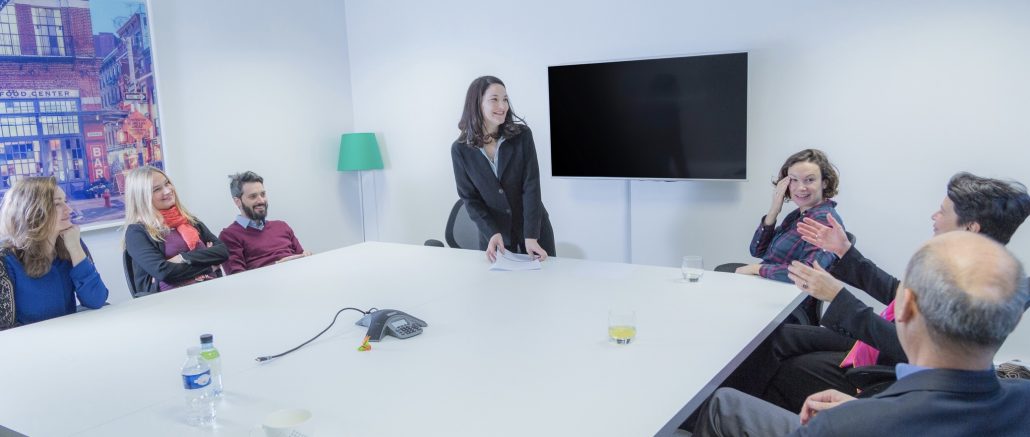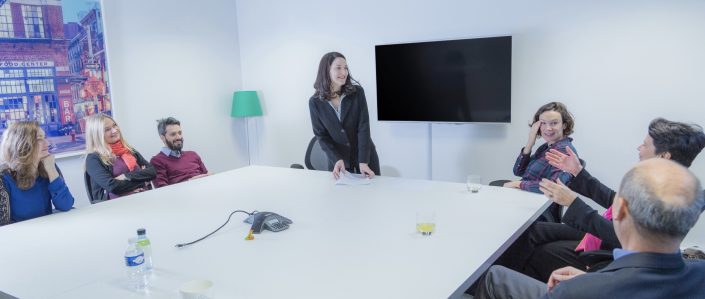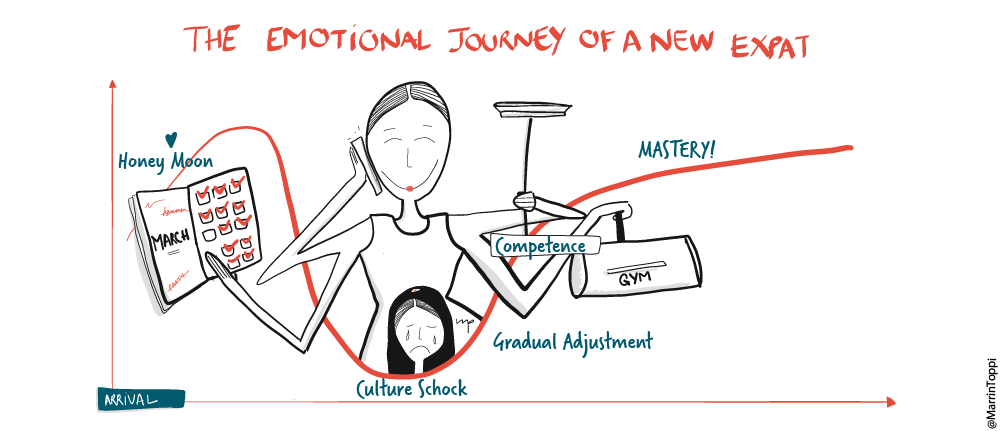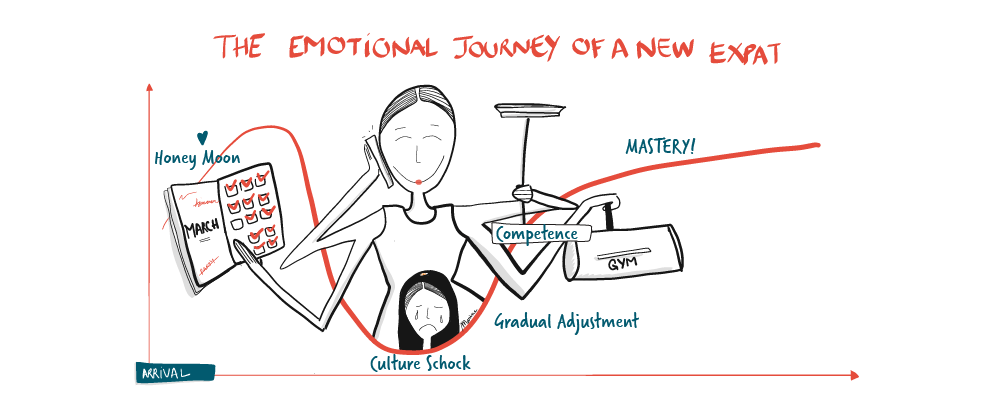Acting tips to develop your impact as a speaker, for face to face and online presentations
As a communication coach and actress, I get very often asked about my « best tips » for public speaking. Here they are for face to face and video conferences.
1. Overcome Stage Fright
One of the most common questions I get asked is how to deal with stage fright.
I give below a few tips to relax before a presentation and they do help!
I will add that most of very experienced actors still feel stage fright before entering on stage… probably because stage fright is natural! Your subconscious is simply giving you an alert about the unusual nature of the situation. A conscious response to it would be to thank it for its vigilance and reassure it before starting! For most of speakers and actors, stage fright disappears after a few minutes on stage… so for most speakers the most important is to dare to go on stage, breathe, hold the micro and start speaking before realizing that stage fright has disappeared by itself.
The best tip I can give to you is : practice, practice, practice. The more you practice, the better you will become and the more you will get used to that special feeling…

2. Connect to yourself, your story.
Most of the times I accompany clients who have a very good ability to write good speeches. However, when comes the time to share their story some essential components are missing : the connection to themselves, their story and their audience.
Connecting to yourself can be simple
First I will advice you to take note of how you have been feeling that day. You can feel wonderful, happy, empowered or sad, tired, frustrated… In both cases it is essential that you take the time to identify how you have been feeling before your presentation. We are not machines, we have feelings. If you don’t take that time or if you try to hide the way you feel to yourself it could make you sound a bit like a robot… Taking the time to identify your feelings will help you grow your presence and impact.
Now that you have taken the time to identify your mood of the day, simple breathing technique and warm up exercices will continue to help you grow your presence.
Breathe : adopt a mindful and costo-diaphragmatic breathing (also known as abdominal breathing) for a couple of minutes before your speech. It is quite easy to do anywhere and very relaxing!
When you are relaxed and before starting your presentation, remember to use that costo-diaphragmatic breathing when you speak too, it will help you while you are speaking to have a good vocal technique.
Before you are giving your speech I recommend that you stretch, open and warm up your body in order for you to get rid of tensions and feel confident.
When you are giving a presentation, to be mindful about your body and adopt a physical posture of opening will hep you to feel good and develop your physical presence.
To do an impactful presentation, connecting to yourself is the first essential step. It will make it easier for you to connect to your audience.
Preparation to connect to your audience
Who is your audience? I recommend you get as much information as you can to get to know what kind of people are there to listen to you.
A good acting tip would be to talk to your audience as if you talked to one specific person and then to chose : how would you describe that person you would speak to (chose or imagine a specific person who would help you deliver the best version of your speech).
Stay connected to your story and audience
Connect to your speech : use your mind to translate it into images, it will probably make you slow down a bit.
I also recommend that you pause to breathe when you are delivering your speech, it will allow your audience to breathe too and to connect to the different parts of your story!
Remembering WHY it is essential for you to share your story is key.
I recommend you take the time to write it down as a note to yourself when you are preparing your speech.
What’s your take on what your share? Assume your point of view will make your speech very alive.
It will help you dare to get involved and to be authentic.
Smiling for real (because what you are sharing makes you happy or proud) is always a beautiful way to connect to your audience,
Get prepared to share emotions and humour (if you can).
You have well prepared your speech and when it is time to deliver it, being present means being in the now. All your preparation will help you be spontaneous and real.
With social distancing now, to do online presentations tend to be a « new normal » format.
I would say the same tips apply to these kind of presentations and give you that advice : transform your office into a new stage where you can shine!
3. Transform your office into a new stage before your online presentation
Take time to :
Set a good lighting. The best light will always be a natural light. If you can : try to seat in front of your window. If it is not possible or if you need to complete this natural lighting, try to have a soft source of lighting (for exemple a white lampshade can be very useful).
Choose your background. Wether it is a neutral background or a background that defines you (a library, a painting etc), it is essential that you present with a background you chose!
Raise your camera in order for you to be filmed slightly from above, it will enhance your eye contact.
Test sound (the micro in your earplugs is often better than the one which is on the computer) and frame (do a screen shot) before you start.
Thanks to these very simple tips, your online presentations will have a professional quality.
As a communication coach and actress, I am keen to give tips to my clients that are adapted to their busy daily life, that is why I have chosen to give you advices that are quite simple to follow.
I hope you find these acting tips useful.
Need to practice or be accompanied for public speaking? I will be very glad to answer your questions, please don’t hesitate to Contact Le Studio.
I wish you much success!
By Clémentine Pons
May 14, 2020





